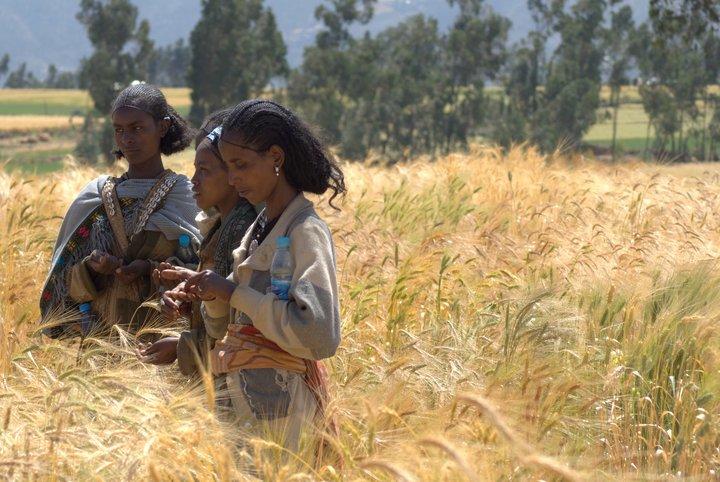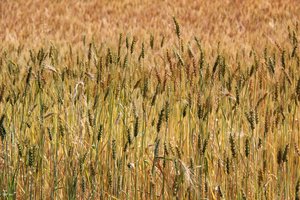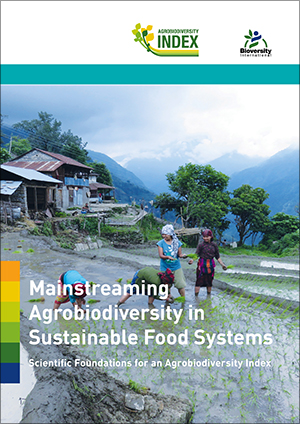How Transformative Agrobiodiversity Innovations help advance the G7’s agenda on agricultural development

As Italy’s G7 Presidential Agenda draws to a close, Bioversity International’s Private Sector Engagement Coordinator, Gianpiero Menza, reports on what the outcomes mean for mainstreaming agricultural biodiversity.
As Italy’s G7 presidential agenda draws to a close, Bioversity International’s Private Sector Engagement Coordinator, Gianpiero Menza, reports on what the outcomes mean for mainstreaming agricultural biodiversity.
Earlier this month, the Ministers of Agriculture gathered in Bergamo, Italy, for one of the last in a series of meetings that have marked the Italian Presidency of the G7. The Ministerial meetings held throughout this year have examined how global scenarios are rapidly changing, calling for immediate multi-stakeholder action to meaningfully address the needs of the expanding global population, projected to reach approximately 10 billion people by 2050. This growth puts the already stretched natural resources of our planet under even more pressure.
Following the adoption of the Bergamo Declaration, the Italian Minister of Agriculture, Antonio Martina, highlighted the G7 commitment to ensuring that “500 million people would be out of hunger by 2030”. In line with the 2030 Agenda for Sustainable Development, he emphasized the role of agriculture in increasing sustainable productivity, particularly in Africa. The G7 “recognizes the central role of agriculture in feeding the planet" and SDG2 "identifies the targets for future agricultural policies to end hunger, achieve food security, improve nutrition and promote sustainable agriculture".
During the meeting, the G7 Ministers for Agriculture discussed the impacts of climate change, decreasing soil quality and biodiversity on the planet’s capacity to feed its growing population.
The meeting acknowledged that “agriculture is particularly vulnerable to a large variety of risks such as financial and market risks, weather-related risks such as floods and droughts…” and the impact of climate change on rural communities can further negatively affect farmers’ incomes and livelihoods. As these problems have become too large and complex for any segment of society to solve alone, the G7 leaders called for greater collaboration among international organizations, businesses, research organizations and governments to more sustainably manage and efficiently harness natural resources in agricultural production.
Moreover, they particularly highlighted the loss of biodiversity in agriculture: “…climate change, declining biodiversity…threaten our capacity to feed a growing population...” and recognized that more productive and sustainable food systems are needed to achieve food security and improved nutrition. In fact, mainstreaming agricultural biodiversity can help make food systems more sustainable by providing more nutritious and diverse foods. At the same time, it can make food production systems more resilient through climate change adaptation and resistant to pests and disease as well as improve livelihoods in rural areas.
One example of a successful approach is Bioversity International’s 'Seeds for Needs' initiative implemented in 14 different countries to help farmers access a wider range of crop varieties and local landraces, to help them adapt to climate change. This innovative approach has involved over 30,000 farmers and numerous local partners and governments since 2012 in testing varieties of various crops. The farmers actively contribute to scientific research by evaluating different varieties of crops to find those best suited to their local conditions and preferences.
In Ethiopia, 'Seeds for Needs' has helped identify local varieties of durum wheat that are more resistant to disease, more drought tolerant and possibly more nutritious than commercial varieties. Building on Bioversity International’s expertise, in May 2017 an initiative was launched in collaboration with the Italian Permanent Mission to the UN in Rome and Consiglio per la Ricerca in Agricoltura (CREA) and other key Italian partners with relevant know-how in the field. This initiative intends to complement the genetic and agricultural biodiversity component of 'Seeds for Needs' in Ethiopia with agronomic practices, mechanical processing, irrigation systems, and investment in infrastructure in order to improve farmers’ access to markets.
Developing a stronger value chain that relies on local varieties would safeguard the biodiversity, reduce the quantity of imported wheat and strengthen the agricultural and agribusiness sector, including boosting incomes for farmers, and creating new job opportunities and more sustainable employment, curbing one of the key drivers of migration.
The G7 leaders have called for international organizations, the private sector and other stakeholders to forge responsible private-public partnerships that more effectively address farmers’ needs, find ways of attracting innovative agricultural finance, and develop and apply risk management tools. They have also noted the strategic importance of investment in research, innovation and sharing of information. This includes data gathering and management to identify tailored solutions to address climate change and the decline of biodiversity in agriculture.
 Bioversity International’s Agrobiodiversity Index responds to this call for innovative partnerships and financing. The Index will measure agrobiodiversity from production to consumption in countries, projects and linked supply chains, thereby catalyzing enabling changes in governments, agribusinesses and investor policies and investments. It can also be used to leverage incremental private financing through green bonds or equity funds, which can lead to new market opportunities for investors in the agricultural sector and in improving sustainability of food systems.
Bioversity International’s Agrobiodiversity Index responds to this call for innovative partnerships and financing. The Index will measure agrobiodiversity from production to consumption in countries, projects and linked supply chains, thereby catalyzing enabling changes in governments, agribusinesses and investor policies and investments. It can also be used to leverage incremental private financing through green bonds or equity funds, which can lead to new market opportunities for investors in the agricultural sector and in improving sustainability of food systems.
In conclusion, the complex international political context in 2017 did not prevent the Italian G7 Presidency from achieving a consensus and renewed commitments among the G7 governments. The G7 leaders strongly agreed that agriculture and rural development remain key drivers for peace and economic growth and are important elements in addressing the rising challenges of migration. Bioversity International is at the forefront of the efforts of creating more sustainable agricultural solutions as it delivers scientific evidence, management practices, policy options and capacity development to use and safeguard agricultural and tree biodiversity, while contributing to the 2030 Agenda for Sustainable Development and ensuring that “no one is left behind”.
Discover Bioversity International's flagship report Mainstreaming Agrobiodiversity in Sustainable Food Systems.
Read more about the Agrobiodiversity Index and Seeds for Needs.
Notes:
The Prime Ministers’ G7 Summit held in Taormina (May 22-27) mainly focused on broad global challenges, while the 11 ministerial meetings including a number of Sherpa and working-group meetings, including the Ministers of Environment (Bologna, June 11-12) and Agriculture (Bergamo, October 14-16) held more detailed discussions, respectively addressing environmental and agricultural challenges, and offering solutions to help advance the 2030 Agenda for Sustainable Development.
Photos:
Top: 'Seeds for Needs' in Ethiopia. Farmers evaluating wheat varieties in the Tigray Region. Credit: Bioversity International/J. Van De Gevel
Middle: Bioversity International's new open access book Mainstreaming Agrobiodiversity in Sustainable Food Systems, summarizing the most recent evidence on how to use agrobiodiversity to provide nutritious foods through harnessing natural processes.
Bottom: Durum wheat varieties growing in the trial plots at Geregera, Ethiopia.; Credit: Bioversity International/S.Collins

